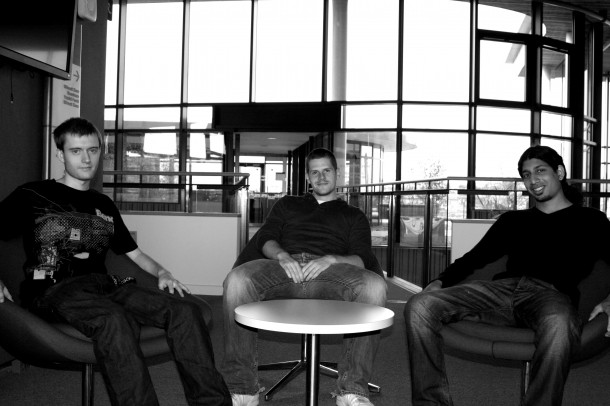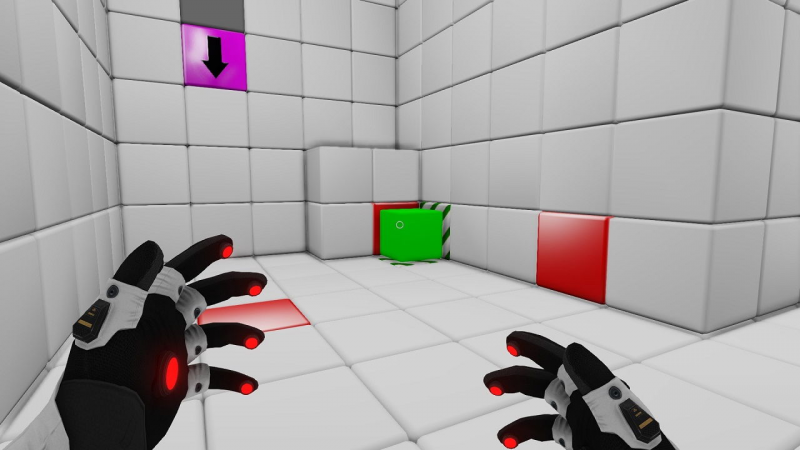
Dear Esther made its stand-alone debut on Steam February 14, Valentine’s Day. Five and a half hours later, it became profitable. In under 24 hours, the high-definition remake of an experiential art game that began as a Source engine mod, sold over 16,000 copies. Dear Esther is the second game to find success with the help of the Indie Fund.
Two months ago, Q.U.B.E. quickly went through the same events, recouping its funding four days after launch.
“We were mega chuffed when we found out we were selected to be funded by Indie Fund,” Daniel Da Rocha, managing director at Toxic Games told me in a recent email. Q.U.B.E. was pitched to a prestigious committee of game designers, including Jonathan Blow, Ron Carmel, Kyle Gabler, Aaron Isaksen, Kellee Santiago, Nathan Vella, and Mathew Wegner late August 2010. “We sent of[sic] an initial submission form that included a video of the game,” he said, “We then spent up to two months talking directly with Indie Fund through Skype, working out a budget and schedule for game development.” The Indie Fund chose to provide their initial estimate of $42,000, with a check for 50 percent of it up front. “They chose to fund us out of over 200 other game submissions.”
Toxic Games was formed after three friends graduated from the University of Wales, Newport. Q.U.B.E. was their final project, and after a positive response, they decided to fund it. “One of our lecturers sent us a list of different investment models and we sifted through each one,” Da Rocha said. “Indie Fund had just come out at the time and sounded just right for what we wanted to do. In fact, it sounded too good to be true.”
 Making the transition from a class project to a complete, commercial product wasn’t easy, they were forced to spend upwards of 40 hours a week, and to outsource some of its development. The game was initially built without a single programmer. “When we started designing the game in [the] University it was very hard to come by a programmer who was willing to work on a student project and who would do it for free,” he said. Instead, they began building a prototype without one; the results were surprising. “We were successful in doing this and decided to build the rest of the game using this method.”
Making the transition from a class project to a complete, commercial product wasn’t easy, they were forced to spend upwards of 40 hours a week, and to outsource some of its development. The game was initially built without a single programmer. “When we started designing the game in [the] University it was very hard to come by a programmer who was willing to work on a student project and who would do it for free,” he said. Instead, they began building a prototype without one; the results were surprising. “We were successful in doing this and decided to build the rest of the game using this method.”
“The advantages we had were if we came up with an idea we could go and make it straight away ourselves, rather than consult a coder. This made it quick to prototype and tweak our ideas. This is a great thing for designers: being able to both design the game and create it. The disadvantages we found later down the line in development were limitations in what we could do. Granted, it would have been so much quicker and easier to have a coder but we wanted to prove to ourselves that we could do this game without one. It’s definitely a plus for budding game developers / students who want to create their own games but are afraid of delving into code.”
About halfway through development, Q.U.B.E. development hit a snag. “At the start we were sure we could make the game in 6 months but what we’ve learnt is that things take much longer than you expect,” he explained. The game ran over the initial budget, requiring an extra $40,000 over the course of the next seven months before it was finished.
Toxic Games would have stayed optimistic without the help of the Indie Fund. “The worst case scenario would [have been] to self fund the game project where possible because we were determined to turn the game into a full commercial release,” he said.
“We had quite a few other puzzle types in the game, including big mazes, 3D jigsaws and paint mixing. Unfortunately we had to take these out due to time constraints.”
Q.U.B.E. launched on Steam 15 percent off its $15 price point. The discount was an effective way to “grab much more attention” according Da Rocha. “We were in the top sellers list for about a week.”
As of January 16, Q.U.B.E. sold over 12,000 copies on Steam. “We are very happy with this response and it goes to show how great Steam is as a distribution platform,” he said.
We haven’t heard the last of Toxic Games and Q.U.B.E. They are currently at work porting the game over to iOS, Mac, and OnLive. Da Rocha says that an XBLA and PSN version is also a possibility.
The Indie Fund isn’t finished supporting talented developers with their ambitious projects. Andy Schatz is among the next in line to release his class-based heist game Monaco sometime this year for PC, and Steph Thirion’s Faraway is due out this Fall on iOS. Who’s next?



No Comments